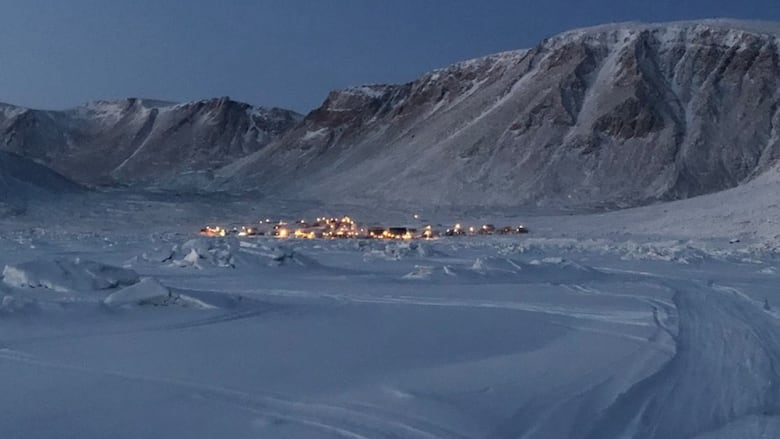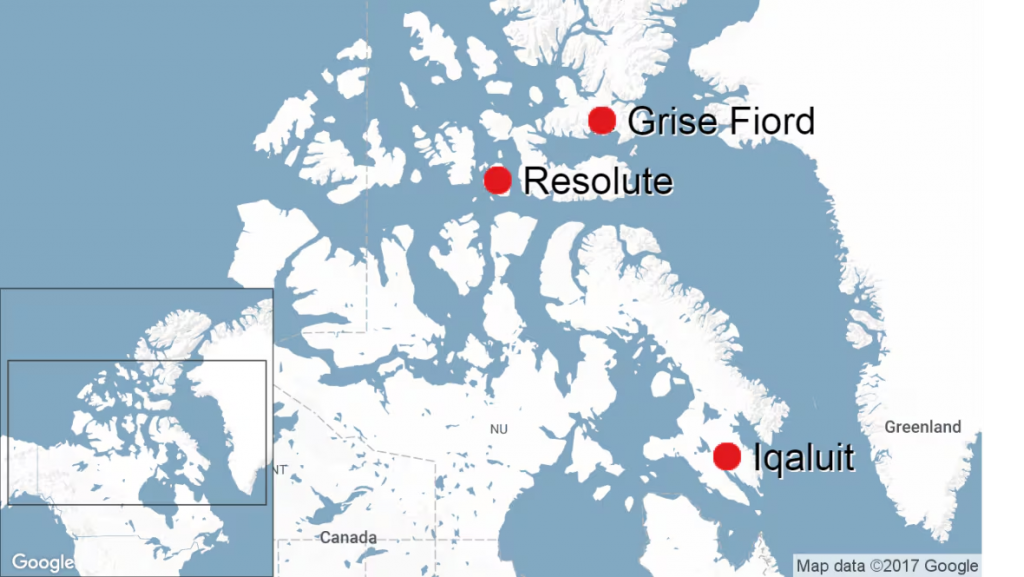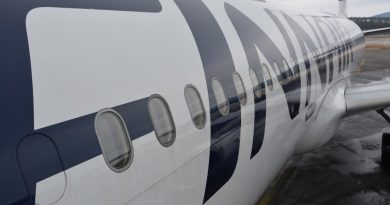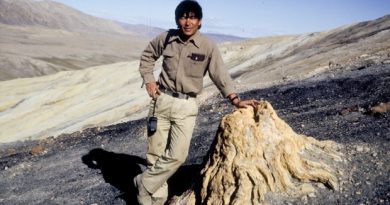Sparse signage, subtle election chatter in Canada’s northernmost community

With less than a week to go before millions of Canadians head to the polls, there were few indications around the country’s northernmost community this week that election day was coming soon.
Grise Fiord has a population of around 140 people. Located on Ellesmere Island just 1,500 kilometres from the North Pole, it is the smallest of Nunavut’s 25 communities.
“I don’t see or hear too much talk about elections here,” Jimmy Qaapik, an adult educator, hamlet councillor and resident since 1987, said of Monday’s federal election.
A Lori Idlout campaign sign stands next to the Grise Fiord Lodge.
Only NDP candidate Lori Idlout, the incumbent MP, has two signs up in the community.
Liberal Kilikvak Kabloona and Conservative James T. Arreak did not appear to have any campaign materials posted in any public spaces.
By contrast, down south in the capital city of Iqaluit, red, blue and orange campaign signs from various political parties line several of the city’s downtown streets.
So far, none of the candidates have visited Grise Fiord since the election writ was dropped on March 23. Idlout was in the hamlet in early March, but that was for a constituency visit.
“We’re too far away for those people to come because it’s too expensive,” Qaapik said.

Also not in Grise Fiord: Advance voting over the long weekend of April 18 to 21.
Elections Canada spokesperson Dianne Benson said the decision not to hold an advance poll was made in consultation with the hamlet office. Grise Fiord was one of 10 Nunavut communities where advance polls weren’t set up, meaning April 28 is the one day residents can vote in person.
“They haven’t had an advance poll in the past, and they were happy with just having a poll on election day,” Benson said.
“They felt that would meet their needs for that community to just come and vote on election day.”
She said there are 68 registered electors in Grise Fiord. That’s lower than the 85 registered for the 2021 federal election, 40 of whom actually voted.
Healthy food, high cost of travel, Arctic sovereignty are among the key issues
Elections Canada has been recruiting Grise Fiord residents to be poll workers on election day, including Inuktitut speakers, Benson said.
Several residents told Nunatsiaq News that secure access to healthy food, the high cost of travel and Arctic sovereignty are among the key issues for Grise Fiord voters.
“People are very interested in this election. You just haven’t heard them talking,” said Larry Audlaluk, an original resident of Grise Fiord who was relocated to the High Arctic in 1953.
With no candidates having visited the community, Audlaluk said people are mostly learning about the parties, their campaigns and their platforms on the radio.
Grise Fiord resident Busuyi Afe says people in Canada’s northernmost community are talking about global events as the April 28 federal election approaches. (Photo by Jeff Pelletier)
Busuyi Afe, who moved to Grise Fiord just last year, said community members are talking about the election but with a focus on some of the global events surrounding it.
“They talk about tariffs, talk about Donald Trump,” Afe said, referring to the United States president’s trade actions against Canada and his threats of annexation.
“Is he going to take Canada? What are we going to do?”
This article was published with financial support from the Covering Canada: Election 2025 Fund.
Related stories from around the North:
Canada: Arctic sovereignty overshadowing everyday issues in election say some Nunavummiut, Eye on the Arctic
Finland: US, Norwegian forces in Lapland for rapid reinforcement exercise, The Independent Barents Observer
Norway: Oslo looks to Brussels for strengthened security and defence, CBC News
Sweden: Sweden’s armed forces want less costly ways to destroy enemy drones, Radio Sweden
United States: White House releases U.S. Arctic strategy implementation plan, Eye on the Arctic



